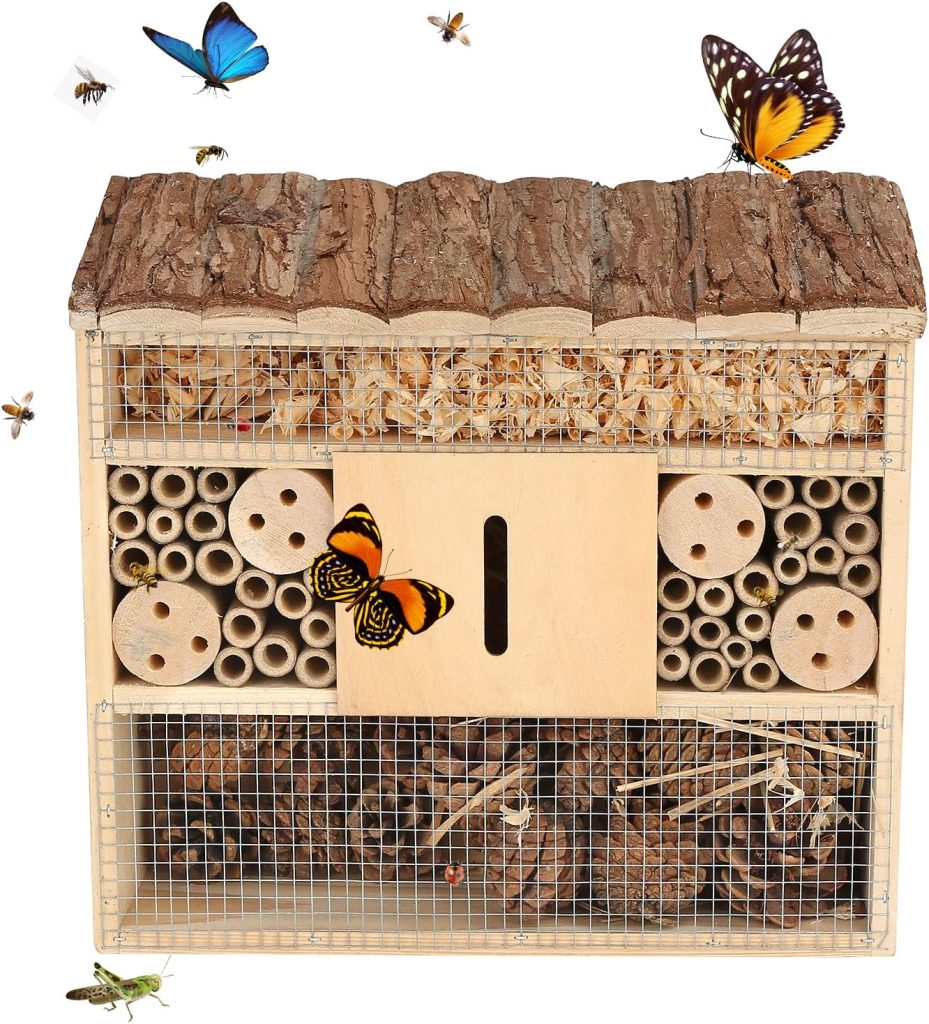Beneficial Insects
In the delicate balance of nature, insects play multifaceted roles, some of which are crucial for the sustenance of organic gardens. Often overshadowed by their pestiferous counterparts, beneficial insects are the unsung heroes of agricultural ecosystems.
These tiny allies provide natural pest control, pollination services, and soil health maintenance, making them invaluable assets for organic gardeners striving for sustainable cultivation practices.

Natural Pest Control Agents
Beneficial insects are formidable adversaries to garden pests, offering an eco-friendly alternative to chemical pesticides.
Ladybugs, also known as lady beetles or ladybird beetles, are perhaps the most renowned warriors in the fight against aphids. A single ladybug can consume up to 5,000 aphids in its lifetime, making them a formidable force for controlling these notorious garden pests.
Similarly, lacewings and hoverflies feast on aphids, mites, and small caterpillars, keeping their populations in check without the need for harmful chemicals.
Pollination Partners
In addition to pest control, many beneficial insects are proficient pollinators, facilitating the reproduction of flowering plants in the garden.
Bees are indispensable pollinators responsible for the fertilization of numerous crops, including fruits, vegetables, and nuts. Bumblebees, with their distinctive buzzing flight, are particularly effective pollinators for crops such as tomatoes, peppers, and blueberries.
By attracting and providing habitat for these pollinators, organic gardeners can enhance crop yields and promote biodiversity in their gardens.
Creating a Habitat for Beneficial Insects
Here are some strategies for creating an insect-friendly environment in your organic garden:
- Diverse Plantings: Incorporate a diverse array of flowering plants in your garden to attract and sustain beneficial insects throughout the growing season. Choose native species whenever possible. They are well-adapted to local climate conditions and provide a reliable food source for native pollinators.
- Provide Shelter: Integrate elements such as hedgerows, brush piles, and rockeries into your garden design. They create sheltered areas where insects can seek refuge from predators and adverse weather conditions. Insect hotels or nesting boxes can also provide habitat for solitary bees that nest in cavities.
- Avoid Chemicals: Minimize the use of chemical pesticides and herbicides in your garden. These can harm friendly insects along with their intended targets. Instead, practice cultural control methods such as crop rotation, mulching, and companion planting. These practices will help deter pests and promote a healthy ecosystem.
- Provide Water: Ensure that beneficial insects have access to water. Incorporate a shallow dish or basin filled with clean water into your garden. Adding rocks or floating cork pieces to the water source can provide landing platforms for insects to drink safely.
- Maintenance Practices: Practice regular garden maintenance. This includes weeding, pruning, and sanitation, to reduce hiding places and breeding sites for pests while enhancing overall garden health. Removing plant debris and avoiding over-watering can help prevent the buildup of pests and diseases.
By embracing the presence of beneficial insects and creating a conducive habitat for their thriving, organic gardeners can cultivate resilient and sustainable ecosystems that flourish without the need for harmful chemicals. Through thoughtful stewardship of the natural world, we can harness the power of these tiny allies to nurture bountiful harvests while preserving the health of the planet for generations to come.
